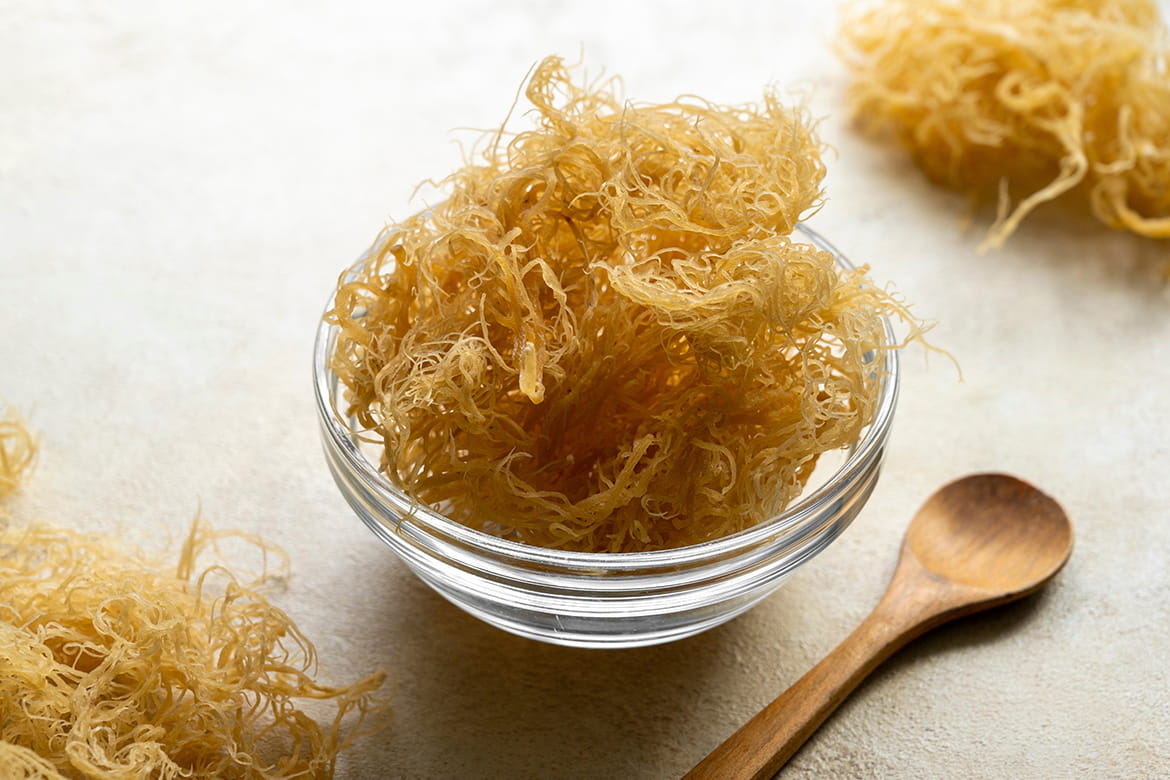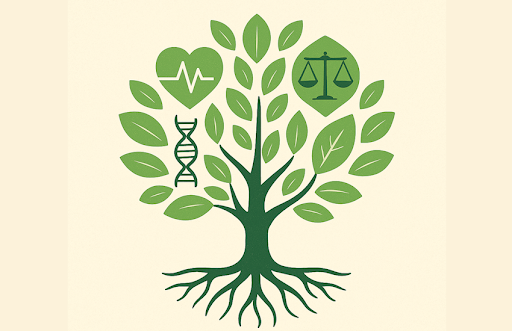The Brain-Boosting Benefits of Seamoss for Memory and Focus
Imagine the vivid colors of seamoss shades of green, gold, and purple swaying gently along rocky shores, dancing to the Atlantic’s tune. These underwater seaweed forests aren’t just beautiful; they’re powerhouses for human health.
Scientifically known as Chondrus Crispus, seamoss has been a revered natural remedy in Ireland and the Caribbean for centuries, touted as a remedy for various ailments. Besides its well-known benefits like boosting the immune system, regulating blood sugar, and supporting heart health, seamoss surprises with its ability to aid weight loss, increase energy levels, and promote youthful skin. Today, we delve into a lesser-known but crucial aspect: seamoss’s impact on the brain.
The Brainy Nutrients in Sea Moss
Alright, it’s time for a little nutrient-deep dive! Seamoss is a nutrition powerhouse, containing over 90 minerals and vitamins our body needs to function daily. But here’s what makes it particularly brain-friendly:
Iodine:
One of the seamoss benefits that it isn’t just for thyroid aficionados. A happy thyroid often means a happier, clearer brain. By keeping your thyroid in check, iodine ensures your brain doesn’t miss a beat. Iodine is a vital element for brain development, especially during fetal growth. In adults, iodine deficiency can lead to cognitive decline. Maintaining optimal iodine levels ensures proper neurotransmission and cognitive functions.
Omega-3 Fatty Acids:
Think of this as your brain’s elixir. These fatty acids are brain food, nurturing memory, cognition, neuroprotection, and healthy brain development. Omega-3s play a huge role in building and repairing brain cells, but they’re also known to help manage mood swings and reduce symptoms of depression.
Antioxidants:
These tiny warriors combat oxidative stress; a notorious troublemaker linked to brain aging. By combating free radicals, the antioxidants in seamoss help protect the brain from oxidative stress, preventing cognitive decline and neurodegenerative diseases, like Alzheimer’s.
B Vitamins:
B vitamins found in seamoss play a critical role in the health and growth of nerve cells. A deficiency can lead to problems like memory impairment and fatigue. Additionally, B vitamins can influence mood regulators like serotonin, dopamine, and gamma-aminobutyric acid (GABA).
Calcium and magnesium:
These minerals found in high concentrations in sea moss play a significant role in transmitting signals in the brain. Adequate levels support better
brain function and help in the prevention of age-related cognitive decline. Besides, magnesium is known to help manage anxiety and promote better sleep, indirectly further supporting brain health.
Zinc:
Essential for neurotransmission, zinc plays a role in maintaining brain structure and health. A deficiency can lead to altered brain function and behavior. Seamoss contains high levels of zinc. As a trace element, zinc (Zn) is vital for the growth and development of an organism.
Potassium:
Potassium is vital for maintaining electrical conductivity in the brain and supporting cognitive functions like learning and memory. Seamoss contains high levels of potassium, too.
By delving into the comprehensive nutrient profile of sea moss, it becomes evident how consuming these marine algae regularly can support various aspects of brain health. Incorporating it into one’s diet might just be one of the keys to unlocking better cognitive function and mental clarity.



